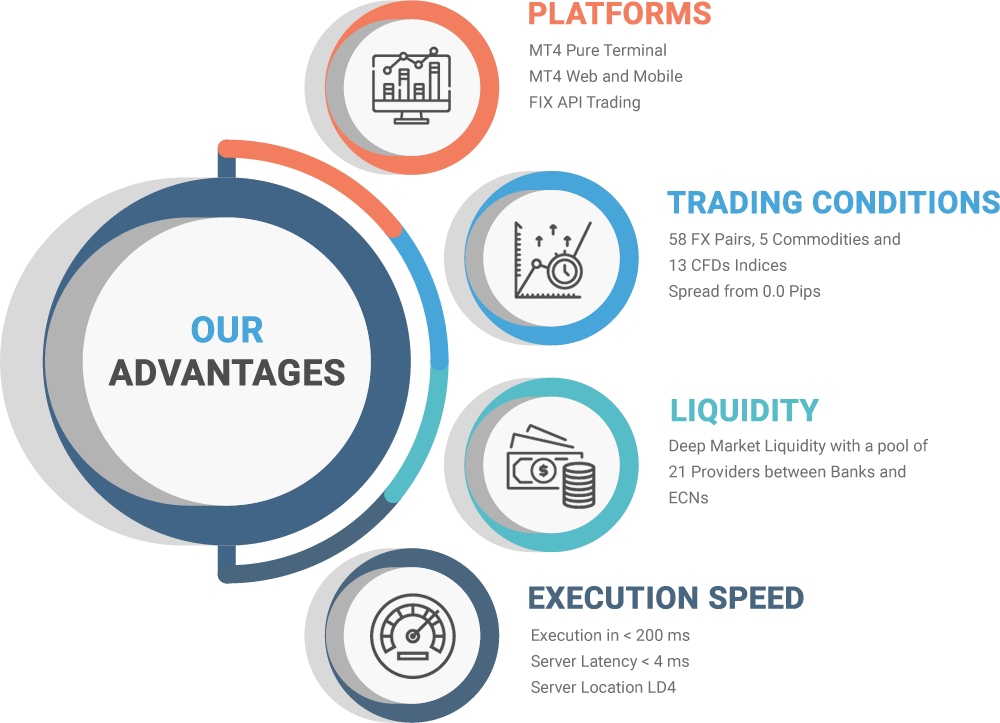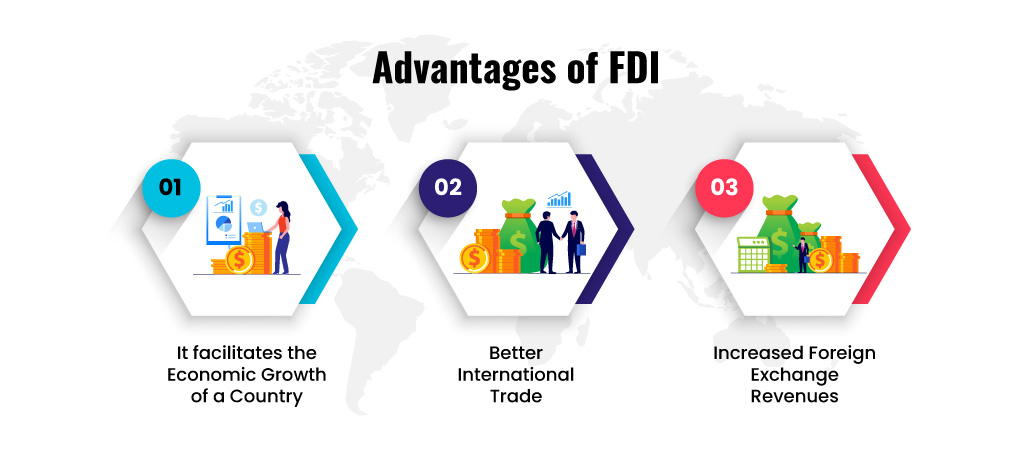The Advantages of Forex Trading in India
Forex trading, also known as foreign exchange trading, has gained substantial popularity in India in recent years. With the rapid advancement of technology, an increasing number of retail traders are venturing into the forex market to capitalize on its numerous advantages. In this blog, we’ll explore the various benefits of forex trading in India, examining why this financial activity has become so attractive to Indian traders.
1. High Liquidity
The foreign exchange market stands as the most extensive and highly liquid financial market globally, boasting a daily trading volume that surpasses $6 trillion. This high level of liquidity ensures that trades can be executed quickly and efficiently, with minimal price fluctuations between trades. For Indian traders, this means the ability to enter and exit positions without significant delays or price discrepancies, which can be crucial for short-term trading strategies.
2. 24-Hour Market
Unlike stock markets, which have fixed trading[1] hours, the forex market operates 24 hours a day, five days a week. This continuous trading environment allows Indian traders to participate in the market at any time that suits them, whether early in the morning or late at night. This flexibility is particularly beneficial for those who have other commitments during regular business hours and want to trade part-time.
3. Leverage Opportunities
One of the most attractive aspects of forex trading is the availability of leverage. Leverage enables traders to manage substantial positions with a comparatively modest amount of capital. For example, a leverage ratio of 100:1 permits a trader to oversee a $100,000 position using only $1,000 of their own funds. In India, the Securities and Exchange Board of India (SEBI) regulates the extent of leverage that can be used, ensuring that traders can maximize their potential returns while managing their c.
4. Low Transaction Costs Forex trading advantages India
Forex trading typically involves low transaction costs compared to other financial markets[2]. Most brokers charge a small spread (the difference between the bid and ask price) for each trade, and there are usually no additional commissions or fees. This cost-efficiency makes forex trading accessible to a wider range of investors, including those with limited capital.
5. Diverse Trading Opportunities
The foreign exchange market provides numerous trading possibilities thanks to the extensive variety of currency pairs[3] on offer. Major pairs like EUR/USD, GBP/USD, and USD/JPY are highly liquid and popular among traders[4], but there are also numerous minor and exotic pairs[5] that provide ample opportunities for diversification and risk management. This diversity allows Indian traders to tailor their trading strategies to their specific preferences and market outlooks.
6. Technological Advancements
The rise of online trading platforms has revolutionized the forex market, making it more accessible to retail traders in India. Advanced trading platforms like MetaTrader 4 (MT4) and MetaTrader 5 (MT5) offer user-friendly interfaces, real-time market data, and a variety of analytical tools. These platforms also support automated trading through the use of expert advisors (EAs), which can execute trades on behalf of the trader based on predefined criteria.
7. Educational Resources and Support
The forex trading community is rich with educational resources and support networks. Indian traders have access to a plethora of online courses, webinars, and tutorials that can help them build their trading knowledge and skills. Many brokers also offer demo accounts, allowing traders to practice their strategies in a risk-free environment before committing real capital. Additionally, online forums and social media groups provide valuable opportunities for traders to share insights and learn from each other’s experiences.
8. Regulated Environment
Forex trading in India is regulated by SEBI, which ensures a safe and transparent trading environment for all participants. SEBI’s regulations help protect traders from fraudulent activities and promote fair market practices. By trading with SEBI-registered brokers, Indian traders can have peace of mind knowing that their funds are secure and that they are trading in a regulated environment.
9. Economic Growth and Stability
India’s growing economy and stable political environment create a favorable backdrop for forex trading. The Indian rupee (INR) is actively traded in the forex market, providing Indian traders with unique opportunities to capitalize on their local currency’s movements. Additionally, India’s increasing integration into the global economy means that Indian traders can benefit from global market trends and economic developments.
10. Hedging Opportunities
Forex trading provides Indian businesses and investors with effective hedging opportunities to manage their exposure to currency risk. For instance, companies engaged in international trade can use forex instruments to hedge against adverse currency movements, thereby protecting their profit margins. Similarly, investors with foreign investments can use forex trading to safeguard their portfolios from currency fluctuations.

11. Potential for High Returns
The forex market’s volatility offers the potential for high returns, especially for traders who can accurately predict currency movements. While this volatility also brings higher risk, the potential rewards can be substantial. With proper risk management and a well-thought-out trading strategy, Indian traders can capitalize on market opportunities and achieve significant profits.
12. Global Market Access
Forex trading provides Indian traders with access to global markets, allowing them to trade currencies from different countries and regions. This global exposure can enhance their understanding of international economic trends and geopolitical events, broadening their investment perspectives. Moreover, the ability to trade various currencies enables Indian traders to diversify their portfolios and reduce their reliance on domestic markets.
13. Tax Benefits
In India, forex trading can offer certain tax benefits, depending on the individual’s tax status and the nature of their trading activities. Profits from forex trading are typically treated as capital gains, which may be subject to favorable tax rates compared to other forms of income. It is advisable for traders to consult with a tax professional to understand the specific tax implications of their trading activities and to optimize their tax strategies.
Conclusion
Forex trading in India offers numerous advantages, making it an attractive option for both novice and experienced traders. The high liquidity, 24-hour market access, leverage opportunities, and low transaction costs are just a few of the benefits that have contributed to the growing popularity of forex trading in the country. Coupled with the availability of advanced trading platforms, extensive educational resources, and a regulated environment, Indian traders are, therefore, well-equipped to navigate the forex market and, consequently, capitalize on its potential. Furthermore, these factors collectively enhance their ability to make informed decisions and manage risks effectively.

FAQS :
What are the benefits of forex trading in India? Forex trading in India offers several advantages, including high liquidity, the potential for significant returns, and the ability to trade 24 hours a day. It also provides access to a wide range of currency pairs and allows for leveraging opportunities.
Is forex trading profitable in India? While forex
trading can indeed be profitable, it nevertheless
involves high risk and, as a result, consequently requires a solid understanding of
the market. Therefore, potential traders must thoroughly educate themselves before
engaging in forex trading.
How do I begin forex trading in India? To start trading forex in India, you must open an account with a registered forex broker. It’s crucial to choose a broker that complies with Indian regulations and offers a reliable trading platform.
Are there any regulations for forex trading in India? Yes, forex trading in India is regulated by the Reserve Bank of India (RBI) and, additionally, by the Securities and Exchange Board of India (SEBI).
4o Regulations are in place to ensure market integrity and protect traders.
Can Indian residents trade forex legally? Yes, Indian residents can trade forex legally; however, they must do so through authorized channels and, consequently, comply with the regulations set forth by the RBI and SEBI. Trading in certain currency pairs and using specific trading platforms is regulated.
